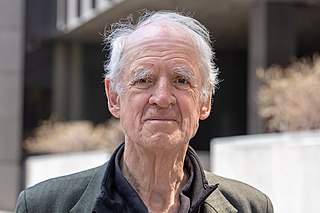A Quote by Daisaku Ikeda
The misfortune of others is our misfortune. Our happiness is the happiness of others. To see ourselves in others and feel an inner oneness and sense of unity with them represents a fundamental revolution in the way we view and live our lives. Therefore, discriminating against another person is the same as discriminating against oneself. When we hurt another, we are hurting ourselves. And when we respect others, we respect and elevate our own lives as well.
Related Quotes
In our concern for others, we worry less about ourselves. When we worry less about ourselves an experience of our own suffering is less intense. What does this tell us? Firstly, because our every action has a universal dimension, a potential impact on others' happiness, ethics are necessary as a means to ensure that we do not harm others. Secondly, it tells us that genuine happiness consists in those spiritual qualities of love, compassion, patience, tolerance and forgiveness and so on. For it is these which provide both for our happiness and others' happiness.
When we harbor negative emotions toward others or toward ourselves, or when we intentionally create pain for others, we poison our own physical and spiritual systems. By far the strongest poison to the human spirit is the inability to forgive oneself or another person. It disables a person's emotional resources. The challenge...is to refine our capacity to love others as well as ourselves and to develop the power of forgiveness.
We define our identity always in dialogue with, sometimes in struggle against, the things our significant others want to see in us. Even after we outgrow some of these others—our parents, for instance—and they disappear from our lives, the conversation with them continues within us as long as we live.
Our inner strengths, experiences, and truths cannot be lost, destroyed, or taken away. Every person has an inborn worth and can contribute to the human community. We all can treat one another with dignity and respect, provide opportunities to grow toward our fullest lives and help one another discover and develop our unique gifts. We each deserve this and we all can extend it to others.
We human beings are social beings. We come into the world as the result of others’ actions. We survive here in dependence on others. Whether we like it or not, there is hardly a moment of our lives when we do not benefit from others’ activities. For this reason, it is hardly surprising that most of our happiness arises in the context of our relationships with others.
Emotional dependence is the opposite of emotional strength. It means needing to have others to survive, wanting others to "do it for us," and depending on others to give us our self-image, make our decisions, and take care of us financially. When we are emotionally dependent, we look to others for our happiness, our concept of "self," and our emotional well-being. Such vulnerability necessitates a search for and dependence on outer support for a sense of our own worth.
We would willingly have others perfect, and yet we amend not our own faults. We would have others severely corrected and will not be corrected ourselves. The large liberty of others displeases us, and yet we will not have our own desires denied us. We will have others kept under by strict laws, but in no sort will ourselves be restrained. And thus it appears how seldom we weigh our neighbor in the same balance with ourselves.
It requires something more than personal experience to gain a philosophy or point of view from any specific event. It is the quality of our response to the event and our capacity to enter into the lives of others that help us to make their lives and experiences our own. In my own case my convictions have derived and developed from events in the lives of others as well as from my own experience. What I have seen meted out to others by authority and repression, economic and political, transcends anything I myself may have endured.
Human beings are not intrinsically selfish, which isolates us from others. We are essentially social animals who depend on others to meet our needs. We achieve happiness, prosperity and progress through social interaction. Therefore, having a kind and helpful attitude contributes to our own and others' happiness.
To live in any true sense of the word is to reject others; to accept them, one must be able to renounce, to do oneself violence, to act against one's own nature, to weaken oneself; we conceive freedom only for ourselves - we extend it to our neighbours only at the cost of exhausting efforts; whence the precariousness of liberalism, a defiance of our instincts, a brief and miraculous success, a state of exception, at the antipodes of our deepest imperatives.

































